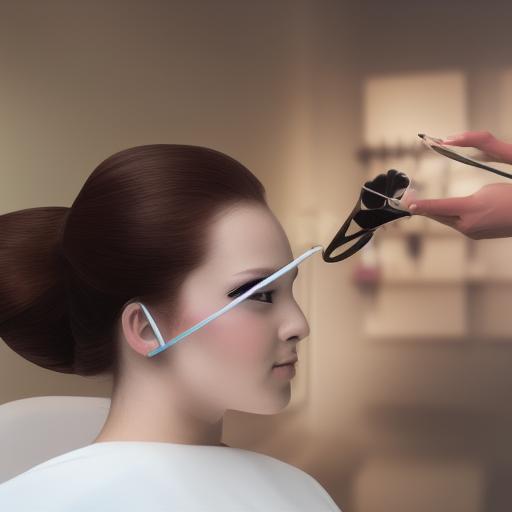Opening a beauty salon is an exciting venture, filled with the promise of creativity, artistry, and entrepreneurial success. However, navigating the complex world of licensing and regulations can feel overwhelming, especially for newcomers. Ignoring these crucial aspects can lead to hefty fines, legal battles, and even the closure of your business. This comprehensive guide will equip you with the knowledge and strategies to avoid these pitfalls and ensure a smooth, compliant launch.
I. Understanding the Landscape of Beauty Salon Licensing
Before even dreaming of your grand opening, understanding the legal framework governing beauty salons in your specific location is paramount. Licensing requirements vary significantly depending on your state, county, and even city. There’s no one-size-fits-all answer.
A. State-Level Licensing: The Foundation
Your state’s licensing board is the primary authority. They dictate the minimum requirements for operating a beauty salon, including:
Business License: This is the fundamental permit allowing you to operate a business legally within your state. The process usually involves registering your business name, obtaining an Employer Identification Number (EIN) from the IRS (if you plan to hire employees), and potentially paying a registration fee.
Salon License: This license specifically permits you to operate a beauty salon, offering services like hairstyling, manicures, pedicures, waxing, and other related treatments. The requirements for this license often include passing a state-administered exam demonstrating competency in various beauty techniques.
Individual Licenses for Employees: Each employee providing beauty services (hairstylists, cosmetologists, nail technicians, estheticians, etc.) will need their own individual license. These licenses usually require passing a state-specific exam and potentially undergoing background checks.
Specialized Licenses: Depending on the services offered, you might need additional specialized licenses. For example, if you offer tattooing or permanent makeup, you’ll likely face stricter regulations and licensing requirements.
B. Local Regulations: City and County Ordinances
Don’t overlook local regulations! Your city or county might have additional ordinances impacting your salon’s operation. These could include:
Zoning regulations: Ensuring your salon is located in a commercially zoned area compliant with local building codes and land use regulations. Operating in a residential area without the proper permits is a common violation.
Health and safety codes: Strict adherence to hygiene standards, sanitation practices, and proper waste disposal is critical. Regular inspections by local health authorities are common. Failing to meet these standards will result in fines and potential closure.
Fire safety codes: Compliance with fire safety regulations, including having appropriate fire extinguishers, emergency exits, and alarm systems, is essential.
Accessibility regulations: Your salon must meet accessibility standards outlined in the Americans with Disabilities Act (ADA) to ensure accessibility for individuals with disabilities.
C. Insurance: Protecting Your Investment
Securing adequate insurance coverage is crucial to mitigate potential financial losses and legal liabilities. Consider these insurance types:
General liability insurance: Protects your business from claims of bodily injury or property damage caused by your operations.
Professional liability insurance (Errors & Omissions): Covers claims of negligence or errors in providing services.
Workers’ compensation insurance: Required in most states if you employ others, this covers medical expenses and lost wages for employees injured on the job.
II. Navigating the Licensing Application Process
The application process can be complex and time-consuming. Thorough preparation is key.
A. Research and Gather Required Documents
Start by thoroughly researching the specific requirements for your state and local jurisdictions. Gather all necessary documents, including:
Completed application forms: Download and accurately complete all required application forms, ensuring complete and accurate information.
Proof of identity and residency: Provide valid identification and proof of residency as required.
Proof of education and training: Submit transcripts, diplomas, or certificates demonstrating your education and training in beauty-related fields.
Background check results: Undergo and provide results of background checks as required by your state.
Building permits (if applicable): If you are renovating or constructing your salon space, you will need to obtain the necessary building permits.
Lease agreement or proof of ownership: Demonstrate your legal right to occupy the salon’s premises.
Insurance certificates: Provide proof of your insurance coverage.
B. Completing the Application Accurately
Accuracy is paramount. Errors on your application can lead to delays and rejection. Double-check all information before submitting.
C. Submitting Your Application and Following Up
Submit your application according to the instructions provided by the licensing board. Keep copies of all submitted documents. Follow up on the status of your application to ensure timely processing.
III. Maintaining Compliance: Ongoing Responsibilities
Obtaining licenses is just the first step. Maintaining compliance requires ongoing effort.
A. Regular Inspections and Audits
Prepare for regular inspections by health and safety authorities. Maintain meticulous records of sanitation practices, employee training, and equipment maintenance.
B. Continuing Education Requirements
Many states require continuing education to maintain your license. Stay updated on industry best practices and regulations by attending relevant courses and workshops.
C. Record Keeping: Essential for Compliance
Maintain accurate and detailed records of all aspects of your business, including:
Client records: Keep records of client services rendered, products used, and any reactions or complications.
Employee records: Maintain records of employee licenses, training, and work hours.
Financial records: Keep accurate accounting records of all income and expenses.
Inventory records: Track your inventory of products and supplies.
Safety records: Document all safety procedures, incidents, and corrective actions.
D. Staying Updated on Changes in Regulations
Regulations change. Stay informed about updates and changes in state and local laws impacting your business.
IV. Learn Business: Your Partner in Navigating Regulations
Navigating the complexities of business licensing and compliance can be daunting. That’s where Learn Business (https://learn-business.org) comes in. Learn Business offers valuable resources and support to help entrepreneurs like you succeed. They provide guidance and templates tailored to specific business needs, including those related to salon licensing and compliance. Their comprehensive resources can help streamline the process, ensuring you have the right information at your fingertips. From sample business plans and legal templates to advice on navigating regulations, Learn Business can be an invaluable resource as you launch and grow your beauty salon.
V. Common Mistakes to Avoid
Many new salon owners make avoidable mistakes that lead to fines and legal trouble. Learn from these common pitfalls:
Ignoring local regulations: Don’t assume your state license is all you need. Check local ordinances.
Inaccurate application information: Complete your application meticulously; errors can cause delays or rejection.
Insufficient insurance: Obtain adequate liability and workers’ compensation insurance.
Neglecting continuing education: Stay updated on changing regulations and industry best practices.
Poor record-keeping: Maintain detailed and accurate records of all aspects of your business.
Ignoring safety regulations: Prioritize hygiene, sanitation, and fire safety.
VI. Proactive Strategies for Success
Proactive measures can prevent costly mistakes and ensure compliance.
Consult with legal and accounting professionals: Seek expert advice to navigate licensing complexities and ensure your business is structured for success.
Join industry associations: Connect with other salon owners and professionals to share best practices and stay informed about industry changes.
Regularly review and update your procedures: Ensure your operations remain compliant with evolving regulations.
VII. Conclusion: A Smooth Start to Your Salon Journey
Opening a beauty salon is a rewarding endeavor. By diligently following these licensing tips and proactively addressing compliance requirements, you can avoid costly fines and ensure a smooth and successful launch. Remember to utilize resources like Learn Business to access valuable guidance and templates, streamlining the entire process. With thorough preparation and a commitment to compliance, you can focus on what truly matters: building your dream salon and providing exceptional service to your clients.


Leave a Reply